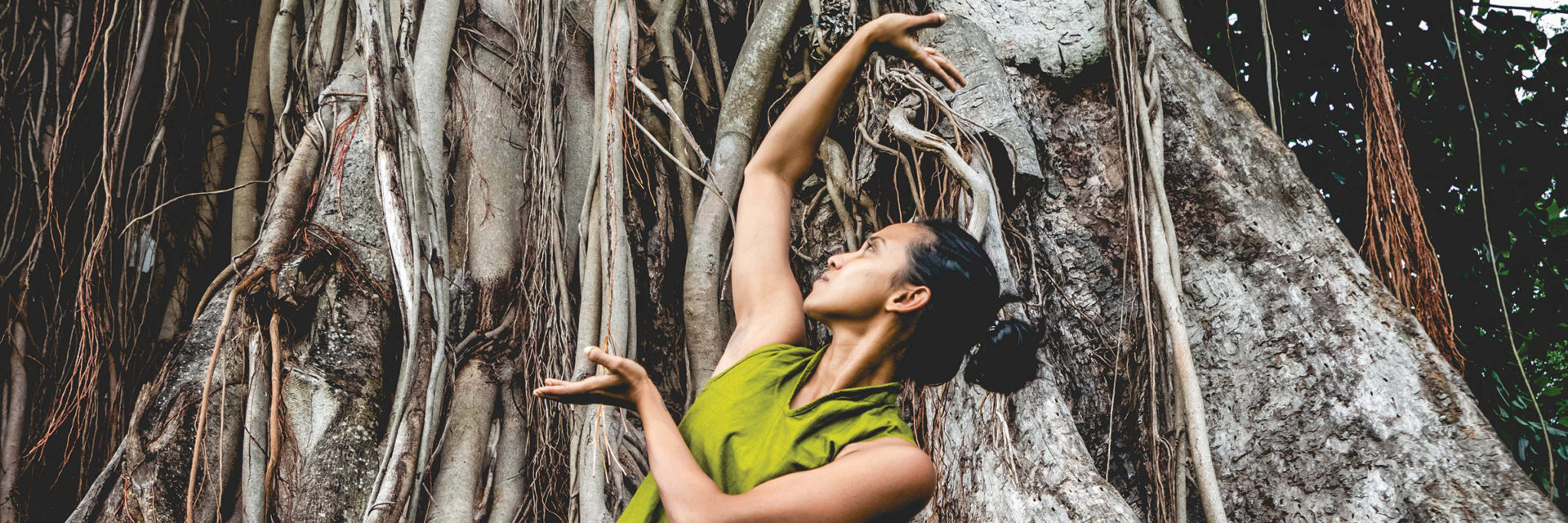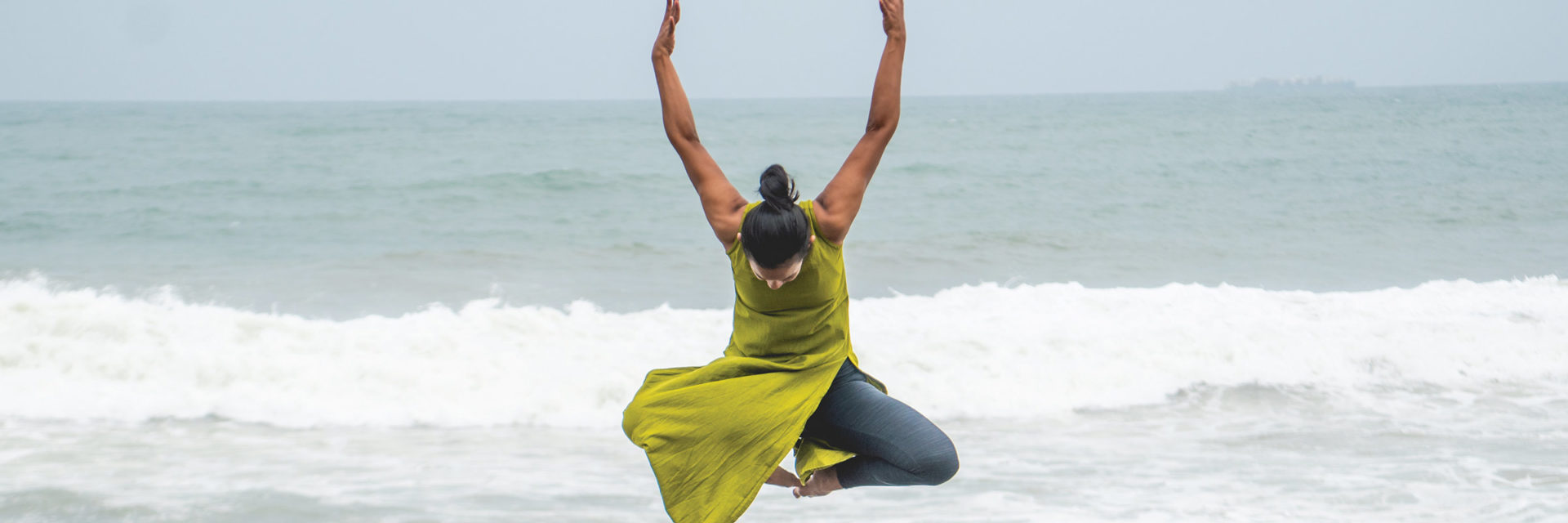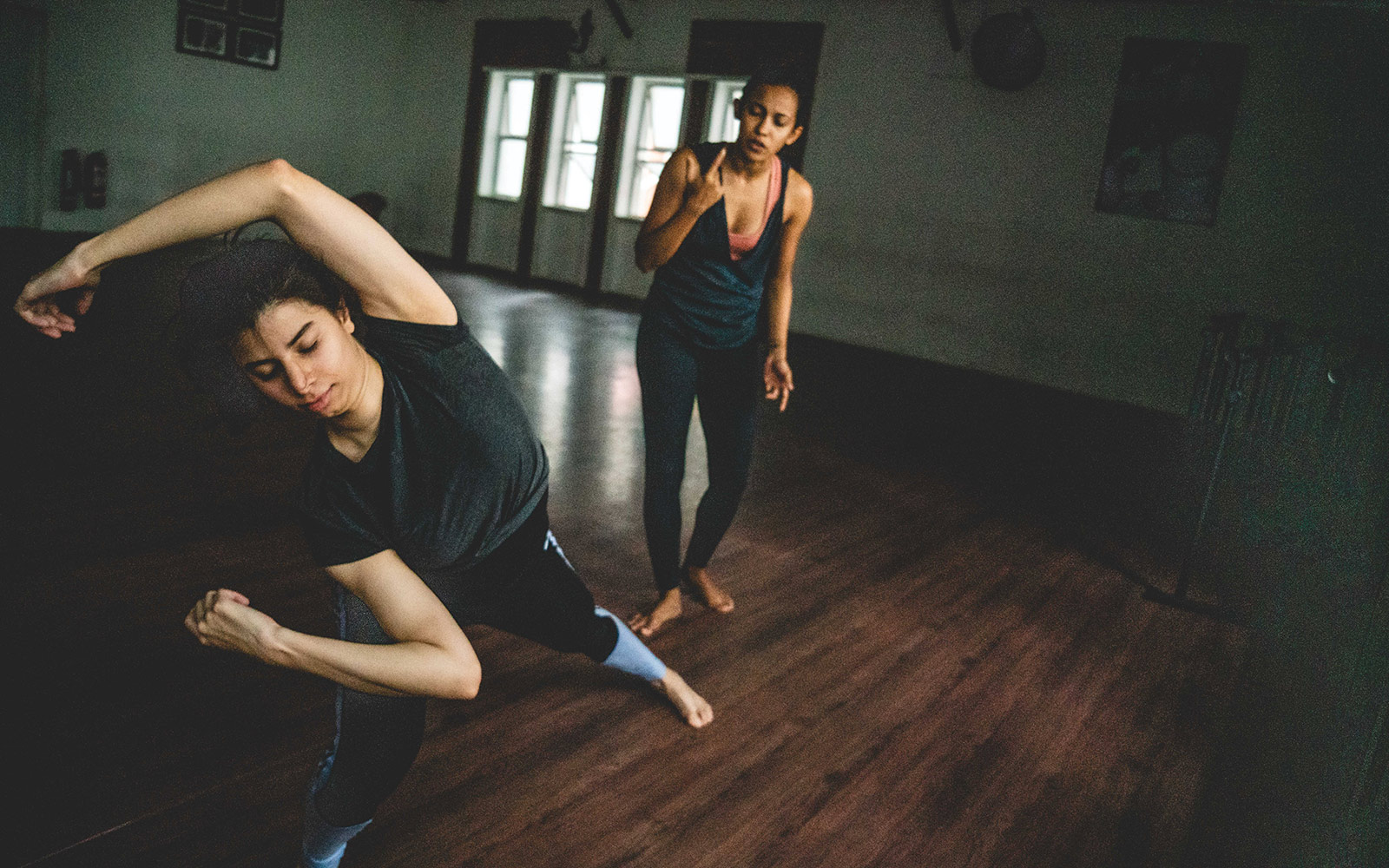When Umeshi Rajeendra ’13 began dancing at the age of 6 in her home country of Sri Lanka, she knew the drill: Follow the teacher. Learn the steps. Mimic. One foot in front of the other. She danced all the way up until the time she entered Denison as a first-year—and it was there, she says, that the world of dance really opened up to her. “All I came to campus with was a technical background,” Rajeendra says, “and I didn’t realize how much there was to dance—the study of it, the dramatic style of it—beyond pure entertainment,” she says.

With degrees in dance and economics from Denison, Umeshi headed to New York, where she worked at a sales and marketing company, and with freelance dancers and independent artists as a dancer. Eventually, she brought it all home to Sri Lanka.
In 2015, she launched Mesh Academy and Mesh Theatre, and she began asking her students to focus—not on perfect form, but on innovation and experimentation. “The focus of the school is as an experimental platform to train contemporary dancers and prospective choreographers, as well as to create a vibrant space that awakens the love of dance through the integration of the body, the mind, and the spirit,” says Rajeendra. “We believe focusing on perfection is not as interesting or as educational as exploring innovative ways to create, to build, and to research.”

Far beyond that mimicking 6-year-old, Rajeendra today is an explorer of movement—an innovator. Much of her own professional work focuses on culture and geography, and how they influence movement and bridge cultures. “I work on projects that try to capture the pure beauty of the similarities and differences in people and places,” says Rajeendra. “It’s an effort to appreciate the diversity of the world and a commentary on the collective nature of humanity.”

As an M.F.A. student at the University of the Arts in Philadelphia (fellow dancer Bridget Ryan ’19 is running Mesh in her absence), Rajeendra’s current work does just that. She has spent the last few months doing thesis work that expands and challenges how she teaches dance. “It’s about creating an in-between space in the body, finding discomfort as a way to cultivate ourselves differently through movement, and relational geography as a way to question the history of our bodily knowledge and the multiplicity of stories that live within us,” says Rajeendra. What happens, for example, if a dancer explores ballet in the upper part of the body, and a meditative practice in the lower part? “By investigating these areas, I am uncovering an improvisational methodology to potentially break habitual ways of moving as a dancer and re-imagining the idea of ‘form’ and ‘technique.’”
The COVID-19 pandemic is also forcing Rajeendra to push her creativity in new ways as she works with Israeli dancer Netta Yerushalmy on a future project. Right now, the dancers are collaborating entirely through Zoom. “We’re working now on how we move in isolation, but still stay connected to each other.”

Rajeendra’s studies and entrepreneurial endeavor through Mesh has also benefited current Denison dancers. Rajeendra has worked with her former Denison professor, Sandra Mathern-Smith, for a cultural dance exchange. Mathern-Smith has taken students to Sri Lanka to partner with Rajeendra at Mesh, and Rajeendra’s students have traveled to Granville to study at Denison.
“This kind of cultural exchange benefits both countries enormously. Students from U.S. institutions gain skills, but they also practice their research and expand their ideas, values, and cultural boundaries,” says Rajeendra. “At the same time, Sri Lankan students are exposed to a very different way of considering dance as an educative art form, and they also are able to share their own dance culture. It’s an essential step towards intercultural exchange and understanding.”


